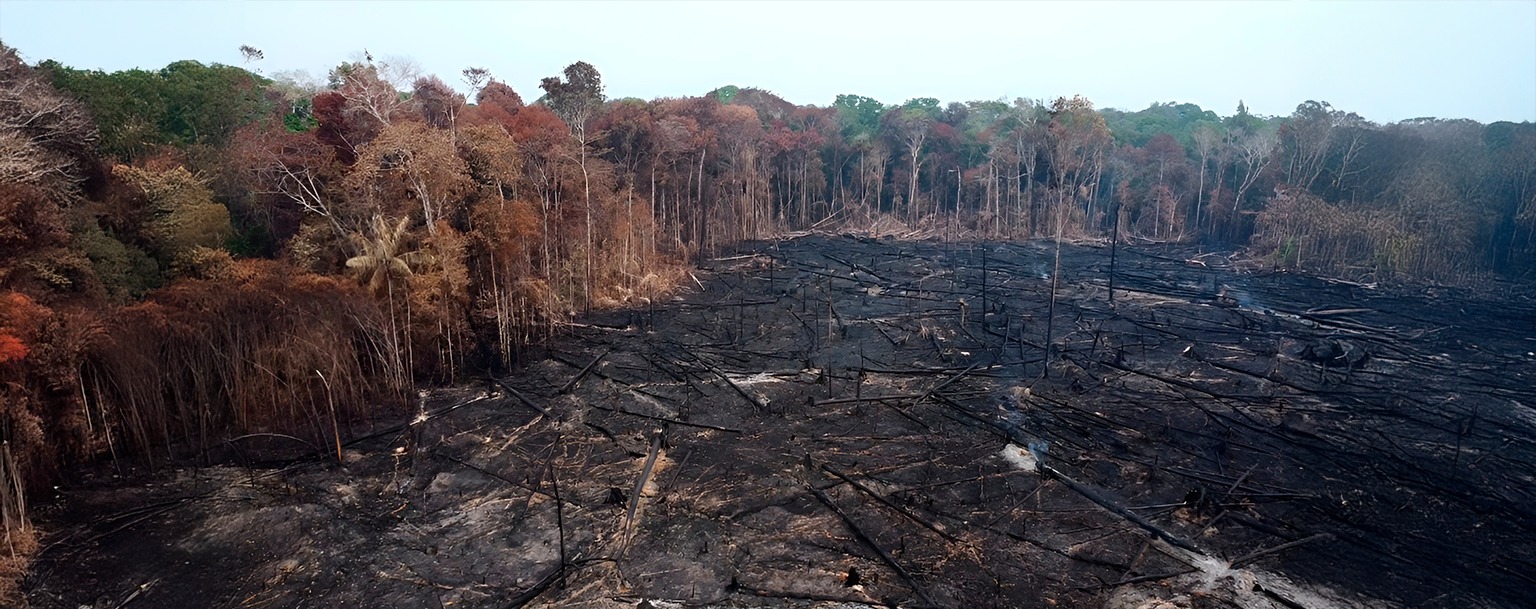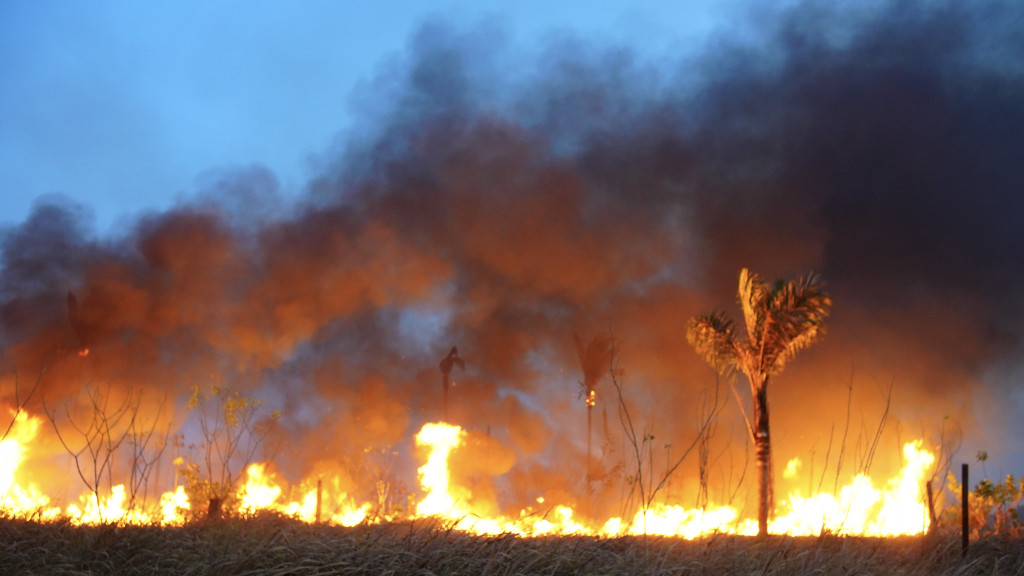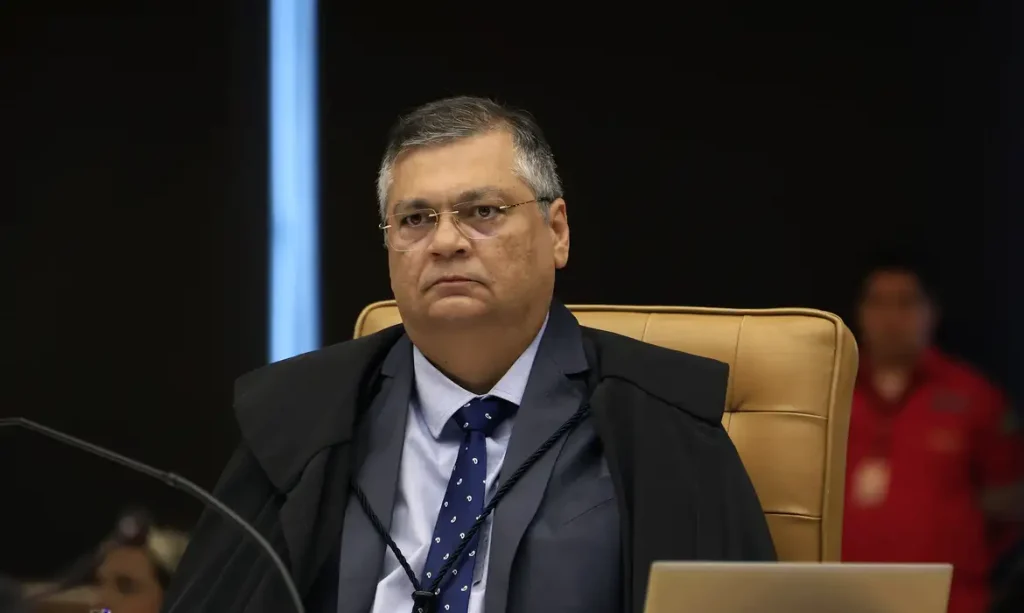Brazilian Supreme Court orders states to present plans against wildfires
23 de January de 2025

By Ana Cláudia Leocádio – From Cenarium
BRASÍLIA (DF) – Supreme Federal Court (STF) Minister Flávio Dino has ordered the federal government and the governments of the ten states of the Legal Amazon and Pantanal to present emergency plans against wildfires and to update information on police investigations and their results related to illegal forest fires in 2024. The order was published late Wednesday afternoon, the 22nd.
The measure covers the States of Acre, Amapá, Amazonas, Rondônia, Roraima, Pará, Maranhão, Tocantins, Mato Grosso and Mato Grosso do Sul, which have 30 days to present emergency plans against fire and 15 days to send information about updates on criminal investigations to the STF.
Dino’s order comes a day after another decision on Tuesday, the 21st, in which he set a 60-day deadline for states and municipalities in the Amazon and Pantanal to adopt the National System for the Control of Emission of Forest Products (Sinaflor) as the only way to issue the Authorization for the Suppression of Native Vegetation (ASV).

Flávio Dino is the rapporteur for the drafting and enforcement of the ruling in the Actions of Noncompliance with Fundamental Precept (ADPFs) 743, 746, and 857, in which the STF determined that the Union reorganize the policy for preventing and combating fires in the Pantanal and the Amazon. The ADPFs were filed by the parties Rede Sustentabilidade and Psol.
In his new order, by determining the presentation of emergency plans for educational action and awareness regarding integrated fire management, the minister establishes that these must already comply with the terms of the new Law No. 14,944/2024, which instituted the National Policy for Integrated Fire Management. The new legislation was sanctioned last year by President Luiz Inácio Lula da Silva to organize the situation of fire management throughout the country.
“The mentioned emergency plans must include actions for publicity and social mobilization, aiming for broad participation from entrepreneurs and civil society”, Dino states in the decision.
Dino also orders the ten federative entities to “update information related to police investigations and administrative sanctions specifically related to illegal forest fires that occurred in 2024.”
The STF minister justifies his decision after the release of data from MapBiomas on Wednesday, the 22nd, which indicates an increase of nearly 80% in wildfires in 2024 compared to 2023.
According to the MapBiomas report, the Amazon was the most affected biome, with nearly 18 million hectares burned over the past year. This corresponds to more than half (58%) of the total area burned in Brazil last year, the largest area consumed by fire in the last six years in the biome. The forest formation was the class of native vegetation that burned the most in the Amazon: about 6.8 million hectares.
After receiving all the requested information, the minister will forward it to the Attorney General’s Office (PGR) for analysis.
Unification of Sinaflor
After two technical meetings held at the STF in Brasília, which brought together representatives from the ten states and the federal government, the representative of the Brazilian Institute of the Environment and Renewable Natural Resources (Ibama) reported that the National System for the Control of Emission of Forest Products (Sinaflor) is facing serious problems.
Sinaflor is a federal government system, managed by Ibama, that controls the origin of forest products, such as wood and charcoal. It is also responsible for the environmental licensing of works and projects of social interest or public utility that need to deforest areas of native vegetation.
According to Flávio Dino, in his order, among the challenges pointed out, Ibama reported that field teams, during inspection operations, face problems because they find many licenses issued by municipalities that are not in compliance with the legislation. This situation compromises both the transparency of the system and the effectiveness of inspection actions.

Minister Flávio Dino of the Supreme Federal Court (STF) stated, “The representative added that the legislation assigns to the state agency — and, in a supplementary manner, to the Union — the authority to authorize the suppression of native vegetation. Municipalities can only issue such authorizations through a prior agreement or formal delegation act from the competent state agency.”
Due to these obstacles, the minister decided to accept the request from the federal agency and set a 60-day deadline for states and municipalities in the Amazon and Pantanal to use Sinaflor as the only way to issue the Authorization for the Suppression of Native Vegetation (ASV). Anything issued outside the system after this deadline, Dino determined, will be considered null.
According to the minister, the goal of unifying the issuance of ASVs through Sinaflor is to improve control, transparency, and publicity of environmental procedures.

